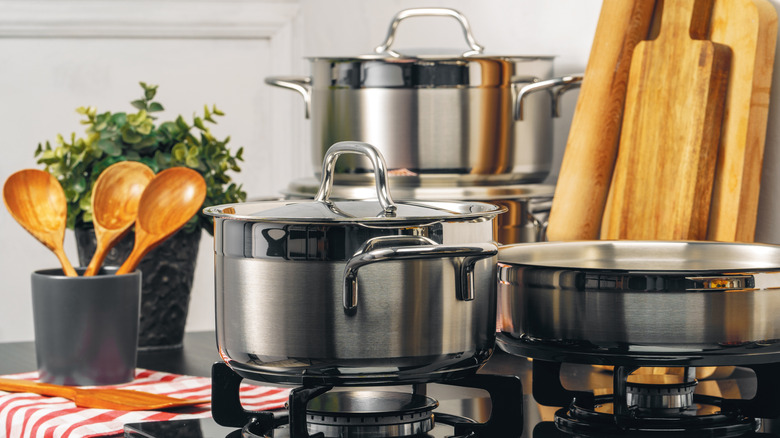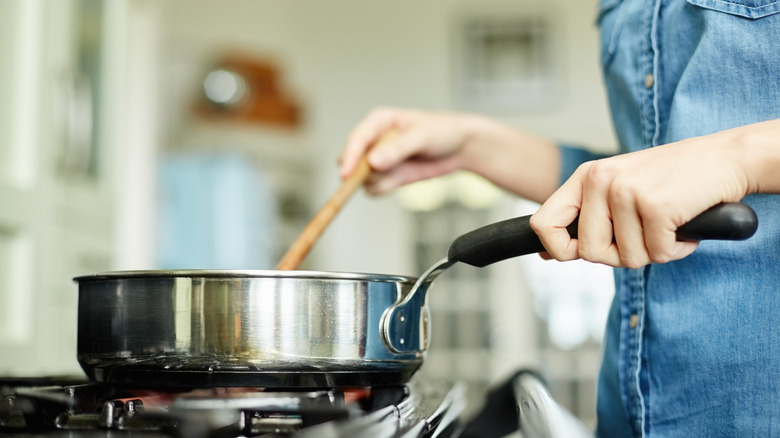Should You Worry About Lead In Your Cookware? Here's What The FDA Has To Say
When you think about kitchen safety, the first few things that come to mind are usually spoiled leftovers, undercooked meat, or maybe a sharp knife accident. What probably doesn't cross your mind is that your cookware itself could be putting your health at risk. But the U.S. Food and Drug Administration (FDA) says that's something we should pay attention to. According to a recent FDA warning, some pots and pans, especially imported products, may release lead during everyday cooking and regular use.
That's troubling because lead isn't just another contaminant you can shrug off. It is a well-known toxin with no safe level of exposure. Even trace amounts can build up in the body over time, leading to serious health effects. So, should you worry about what's in your kitchen cabinets? Could the pots and pans in your kitchen fall into the popular type of cookware you should avoid using? Here's what the FDA has to say.
FDA warns that some imported pots could be toxic
Some imported cookware from India, like pots made of aluminum, aluminum alloys, and brass have been flagged by the FDA for posing health risks. Brands identified include Kadai/Karahi Tiger White, JK Vallabhdas, and Silver Horse. The FDA's warning is also a reminder that not everything sold for cooking is safe. In fact, there are cookware materials to reconsider using on your stove, especially those that can leach lead. Lead is highly toxic, and even trace amounts can be dangerous for children and babies, causing learning difficulties, lower IQ, and behavioral changes. Adults may experience symptoms like vomiting, headaches, fatigue, or stomach pain.
The FDA has made it clear that lead has no place in cookware. It monitors how much can leach from pots and pans, and continues working with manufacturers to reduce risks. At home, the most important step is knowing if your cookware is toxic, and what to do about it. You can start by checking the FDA's updated list of tested products to see if anything in your kitchen appears there. If it does, don't try to refurbish it or pass it on, just throw it away. Keep in mind, though, that this list is not exhaustive. If you're concerned about possible lead exposure, reach out to your healthcare provider for guidance. Retailers and distributors also share the responsibility for ensuring compliance with FDA regulations.

